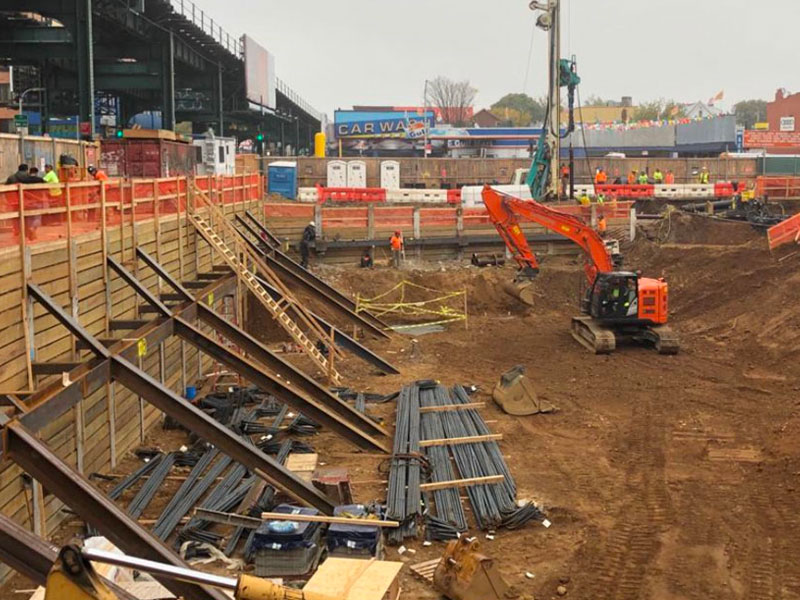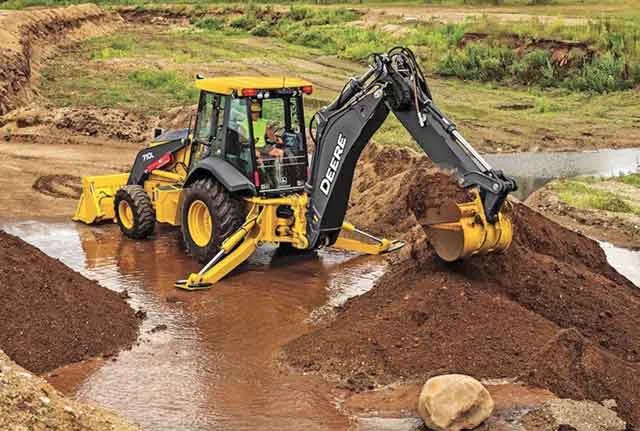Cost Effective Lancaster Excavation - Top Quality Excavation at Competitive Rates
Cost Effective Lancaster Excavation - Top Quality Excavation at Competitive Rates
Blog Article
Comprehensive Excavation Techniques: Understanding the Fundamentals for Success
The mindful planning, accurate implementation, and precise interest to detail required in excavation jobs demand a thorough strategy that includes different basic facets. The true proficiency lies not merely in recognizing these basics however in flawlessly integrating them to navigate the complexities of excavation jobs with skill.
Understanding Excavation Project Preparation

The initial stage of any kind of excavation task is the planning stage, where crucial choices are made that can substantially impact the end result of the job. Recognizing the job spending plan, range, and timeline restraints is essential for developing an extensive excavation strategy that makes sure the project's success.
One trick aspect of excavation project planning is the growth of a thorough timeline that lays out the sequence of activities, milestones, and due dates. This timeline serves as a roadmap for the job group, permitting them to track progress and make essential changes to ensure the project remains on schedule. In addition, a distinct budget that accounts for all costs, including equipment rental, labor prices, and materials, is crucial for avoiding cost overruns and delays. By very carefully thinking about all these aspects throughout the drawing board, excavation projects can be executed efficiently and efficiently, causing effective results.
Soil Evaluation and Site Examination
Performing thorough dirt evaluation and site assessment is a vital step in the preparation stage of any kind of excavation task. Dirt analysis entails figuring out the make-up, structure, and buildings of the dirt at the excavation site. This information is important for understanding the dirt's bearing capacity, dampness content, and possibility for erosion, which are key consider identifying the excavation approaches and equipment required for the task.
Site analysis exceeds dirt analysis and incorporates a broader analysis of the total website problems. This assessment consists of recognizing any kind of potential threats, such as below ground energies, environmental worries, or unsteady terrain, that might influence the excavation process. By extensively evaluating the website, task supervisors can develop effective excavation methods that prioritize safety, efficiency, and ecological defense.
Using innovative modern technologies like ground-penetrating radar, dirt sampling, and drone surveys can boost the precision and effectiveness of soil evaluation and site evaluation. Investing time and resources in these initial actions can ultimately save time and stop pricey delays or difficulties throughout the excavation procedure.
Tools Selection and Usage
Reliable excavation projects rely greatly on critical tools choice and application to make sure ideal performance and performance. Picking the right devices for the task is essential in taking full advantage of performance and reducing downtime. Aspects such as the type of soil, deepness of excavation, and task scope play a substantial role in establishing one of the most ideal devices for the job handy.

Along with selecting the suitable equipment, correct application is key to project success. Operators must be trained to manage the equipment securely and efficiently - excavating ohio. Regular maintenance checks and prompt repair work aid stop breakdowns and ensure regular performance throughout the project
Precaution and Rules Conformity
In the world of excavation projects, focusing on safety and security steps and compliance with laws is paramount to ensuring a safe and legitimately sound operational environment. Precaution incorporate an array of methods, consisting of conducting thorough site assessments, applying proper signs and barriers, and supplying appropriate security training for all workers included in the excavation process. Adherence to laws, such as OSHA needs in the United States, makes sure that the excavation job meets the essential criteria to shield employees, bystanders, and the surrounding environment.

Surveillance Development and Adjusting Approaches
Just how can forecast managers successfully track the innovation of excavation tasks and adjust their strategies as necessary to maximize end results? Monitoring progression is important for ensuring that excavation jobs remain on track and meet deadlines. Job managers can make use of numerous tools and methods to track progress, such as everyday report card, regular website evaluations, and progressed tracking innovations like drones and GPS tracking systems. By continuously keeping an eye on the project's click here to read improvement, supervisors can identify any potential delays or issues at an early stage and take aggressive steps to resolve them.

Conclusion
In final thought, understanding the basics of thorough excavation approaches is essential for the success of any task. By understanding task planning, evaluating soil and website problems, selecting appropriate equipment, complying with safety guidelines, and keeping track of progress, job managers can make sure a efficient and smooth excavation process. Carrying out these techniques will bring about effective results and minimize possible risks or problems throughout the excavation task.
The initial phase of any excavation job is the preparation phase, where critical decisions are made that can dramatically influence the result of the project. Understanding the task spending plan, range, and timeline restrictions is critical for producing a comprehensive excavation strategy that makes certain the task's success.
Exactly how can predict supervisors properly track the improvement of excavation projects and adjust their techniques accordingly to enhance outcomes? By click closely keeping track of development and being willing to adjust techniques, job managers can enhance the total success of excavation jobs.
By comprehending project planning, examining dirt and website problems, picking ideal devices, complying with security policies, and keeping track of progression, task supervisors can guarantee a smooth and reliable excavation procedure.
Report this page